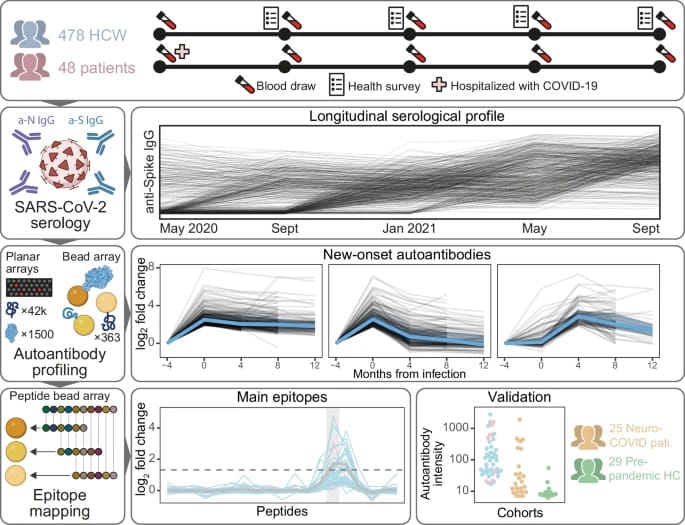By August F. Jernbom et al.
Source Nature
Researchers found on the new-onset autoantibody repertoire in 525 healthcare workers and hospitalized COVID-19 patients,
prevalent new-onset autoantibodies against a wide range of antigens emerged following SARS-CoV-2 infection in relation to pre-infectious baseline samples and remained elevated for at least 12 months.
An increased prevalence of new-onset autoantibodies after severe COVID-19 was found and demonstrated associations between distinct new-onset autoantibodies and neuropsychiatric symptoms post-COVID-19.
It was found three new-onset autoantibodies associated with increased severity of neuropsychiatric symptoms post-COVID-19: anti-CALU, MYO16, and SNURF IgG.
SNURF is a small nuclear protein of unknown function, primarily expressed in brain and muscle tissues and cardiomyocytes.
Anti-SNURF IgG is highly prevalent without evidence of molecular mimicry, which may indicate epitope spreading to nuclear antigens.
Read more click here

